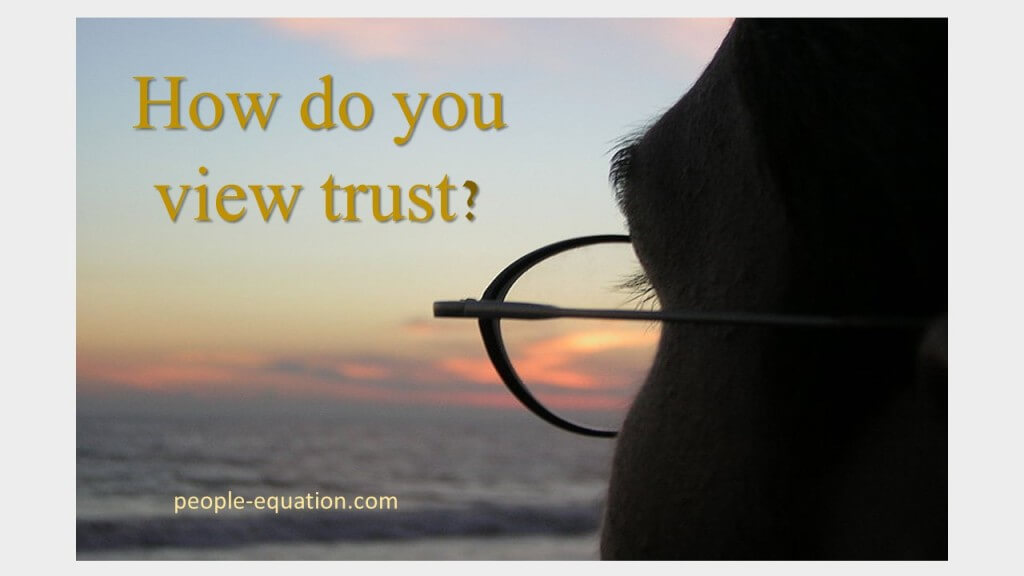When I was sixteen, my family moved across the state. It was the first time we’d ever moved; it was a leap of faith on my parents’ part that we would all adjust to our new surroundings. Luckily, I made friends fairly quickly and established a typical teen social life which included going out with my new-found friends to movies, school dances and high school sporting events.
Whenever friends would come into my house before we went out for the night, they would invariably have one question: “What time is Jenni’s curfew?” My parents would reply, “She doesn’t have one.” My friends were shocked. No curfew?! How could this be? “We trust her to make a good decision” my parents would say with a smile.
And it was true—they did trust me. And guess what? I rarely broke curfew.
Life Experiences Shape Our Views on Trust
Now that I’m a parent, I have come to realize how truly remarkable my parents’ stance on curfews-in-a-new-city was. The trust they placed in me with this issue—and many others—when I was growing up profoundly shaped how I view trust. My trust point of view (“POV”) is, “It’s OK to trust people.” Taking that one step further: you must give trust to get trust.
But not everybody has a heart-warming family tale to tell about trust. For every kid who had a loving, dependable, family dynamic shoring up their trust-building experiences, there are many others with stories of disappointment, betrayal and downright neglect. And this can’t help but seep into the workplace. I am continually surprised by the many surveys that indicate the deep distrust amongst leaders and their teams. But then again, that’s my POV at work—I tend to be trusting.
As a leader, chances are you already understand the importance of trust-building in your company. According the research by staffing company Spherion, senior leadership teams are well aware how important trust is to employees. Yet, these team’s efforts aren’t always seen as inspiring trust.
What’s Your Leadership POV on Trust? 7 Questions
So how can you be sure you are doing the utmost to build trust in your team? The first place to start is with you – what’s your leadership POV on trust? Use these following reflection questions to determine how you view trust. Your answers will reveal clues to how you are helping (and hindering) trust-building practices with your team.
- How do you define “trust”?
- What makes someone “trustworthy”?
- Do you follow the adage, “Trust must be earned”? How, exactly, must people “earn” trust with you? Are there ever times when you give trust freely? If so, what are the circumstances where you’re more likely to give trust?
- When you sense that two of your team members are experiencing a lack of trust with each other, how do you handle it?
- What are things you consider to be “trust busters” – behaviors that will cause you to immediately distrust someone?
- Have you communicated trust-busters to your team? (Their list might be different, so don’t assume they know.)
- Once someone breaks your trust, can they repair it? How?
When you answer these seven questions, you will see themes in your relationship to trust. There’s no “right” answer, only a pattern that can help you build on the trust you already have with your team.
What’s your POV on trust? Are you ready to share it with your team?
Image credit: Mohan K
This post is part of a series on trust-building. Each month, we’ll explore trust in the workplace and offer practical tips for building trust with your boss, colleagues, peers and team members. You can see other installments of the series here.
Want to maximize your leadership communication?
I can help. Let’s talk.
Post updated 2021

What a great perspective! I believe that trust is the foundation of great relationships and great relationships are what lead to success (however you define success). I think a big part of building trust is being as transparent as possible. One reason someone might lack trust with somone else is the feeling that they’re holding back or hiding something. Then, again, you have to trust someone to fully share… a bit of the chicken and the egg, isn’t it?
Ken, agreed – it’s a total chicken and egg. Thanks so much for stopping by.
Best,
Jennifer